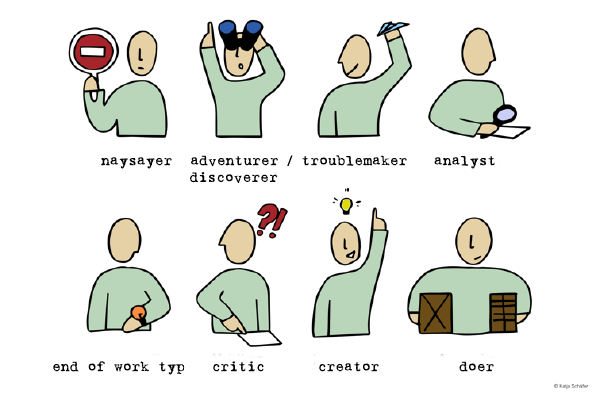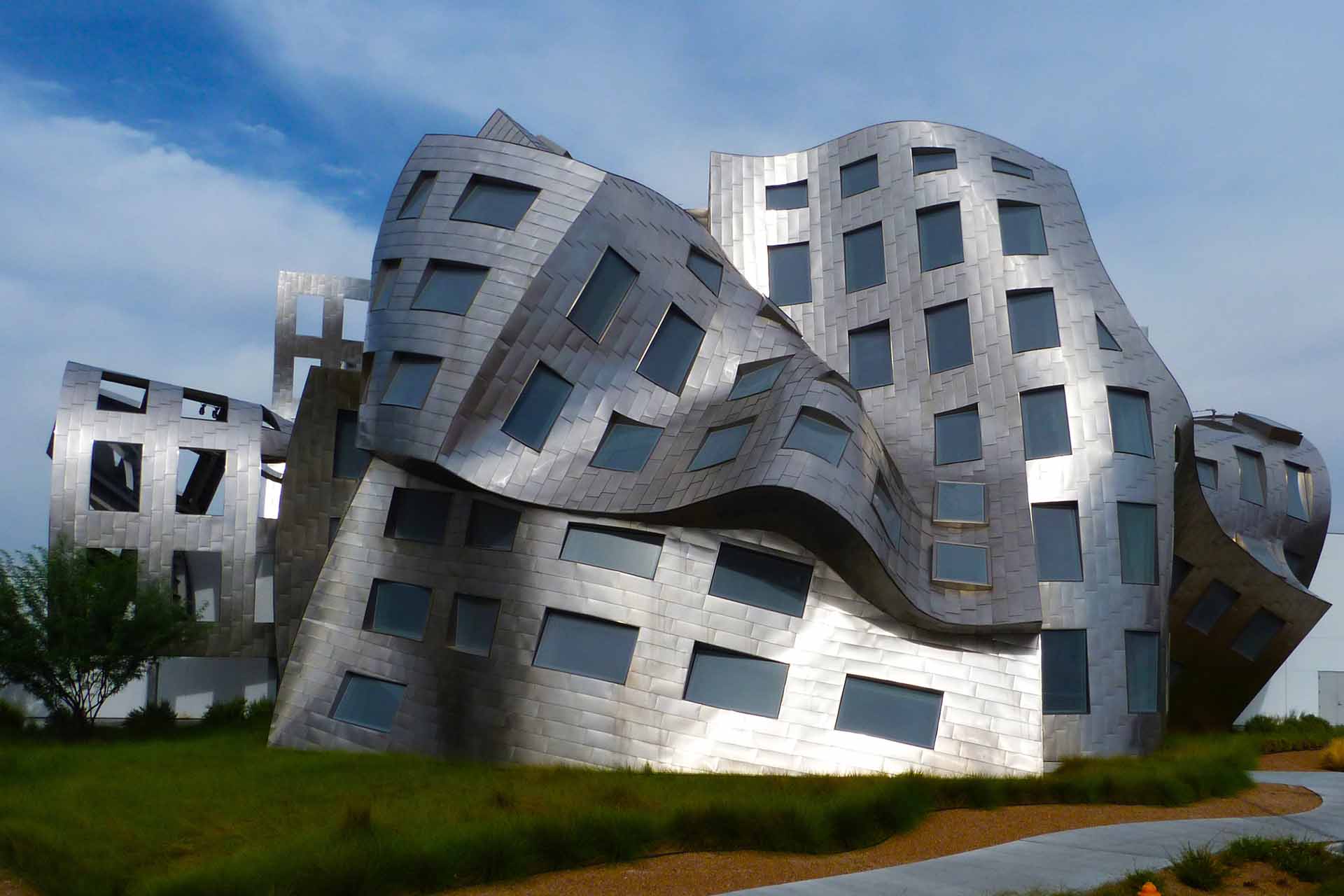Movie or Movement – Moving big projects!
Do you want to know what the biggest success factor in projects is and how projects are simply more fun? This is what this article is about. I would like to invite you to reflect on the topics directly while reading – preferably with pen and paper on the side. In addition to my statements, there are also scientific studies that support what I have written, but my statements are fed by experience and awareness – I like to leave the field and the proof of scientific studies to others.
To “warm up” and to focus on the following words, I would like to ask you a few questions first:
- Are you responsible for projects or do you work in projects?
- Do you really have fun when the project is bigger and more complex?
- Do you see yourself as a leader?
- Do you ever wake up in the morning and think: Wow, what I can do and change today?
We all stand very individually in our lives and always decide on the degree of our participation and involvement in a situation or project. This can happen consciously or unconsciously and automatically. A nice example is reading this article:
- Get the most out of this article for yourself!
- Use exactly this time to change something for yourself!
- Decide to be present with 100% of your attention!
- OR consciously decide for something else, which is more important to you!
Major projects and success factors
Large projects and the complexity they entail fascinate me and are my passion, so I’ve been involved in them for more than 20 years. How can these projects be distinguished, what are the criteria for a big project? As an example, we can look at the following criteria against the background of the respective industry:
- Degree of complexity
- Sales volume / budget
- Resource commitment
- Level of risk
- Number of participants
- Number of subprojects / trades
- High contribution to change in the organisation
- Number of persons concerned
- Execution time
From my point of view, we can recognise it even more easily, because in the respective industry everyone knows: “This is a big project!”
Regarding the success factors for large projects, I am often asked: “What are the decisive factors for success? What makes the difference if the project is successful?” What about following factors?
- Project Management Method
- Planning accuracy
- Concept quality
- Agility
- Project duration
- Goals, KPIs & Scope Definition
- Clear contractual regulation
- Software quality
All these and other points are certainly important for a project to run, but that does not make the difference. The biggest and most important success factor is THE PEOPLE!
We can draw (use) methods as the project and the situation requires. Every day we draw from a comprehensive pool of methods – even if we might not consciously call it that: PM methods, communication, moderation, solution finding, leadership methods, etc.
The method is the tool, and in the trade it is clear to everyone: the tool needs the experienced master to make the result good! A great tool in the hand of the beginner does not create a good result. The individual human being therefore makes the difference in quality!
I could now entertain you or bore you with many examples from practice and approaches which have led big projects to success. We could discuss the success itself, the measurability and how different stakeholders evaluate the success of the same project differently. But all this should not be my topic here.
I will take you further on the journey to the topic Movie or Movement and the PEOPLE being the most important success factor in the project!
PEOPLE are involved in projects with:
- Experience
- Own responsibility
- Mobility
- Solution orientation
- Motivation
- Personal values
- Personal qualities
- Sovereignty & personal security
- His or her way of thinking
Maybe they’re thinking, “Yeah, right.” Most of my colleagues agree with me that people are the most important success factor in projects. And yet I observe that too little attention is often paid to them.
People in projects and change processes
Let’s take a look at the people in the project and look into psychology to better understand the types we are dealing with. Let us start with the 4 temperaments according to Freud: sanguine, choleric, melacholic and phlegmatic.¹
- Sanguine people tend to be open-minded, talkative, accessible, unconscious, lively and carefree.
- Phlegmatics are considered calm, balanced, reliable, controlled, peaceful, considerate, thoughtful and passive.
- Melancholic people tend to be moody, anxious, stiff, matter-of-fact, pessimistic, reserved, unsociable and quiet.
- Choleric people are said to be sensitive, aggressive, excitable, fickle, impulsive, optimistic and energetic.
There are countless other approaches and attempts to categorise people in order to understand them better or to use them more efficiently in teams. There are classifications into visionaries and missionaries, active believers, opportunists, wait-and-see or indifferent people.² I myself dealt intensively with psycho-physiognomics about 15 years ago, with my personal goal to better understand people, their differences and their behaviour.³ In my experience, with our work and through the projects we ALWAYS bring change into organisations and experience all facets and typologies in projects.
If we want to look at it a little differently, we can look at these types:
- What type are you?
- And what type do you want to be?
These questions lead us directly to the title of this article:
Movie or Movement?
- Are you a spectator or do you move and create?
- Do you direct and shoot the (project) film or do you react to everything that comes along?
- Do you design what is to come?
I invite you to reflect personally while reading:
- Are you proactive and creative?
Studies show that 95% of people are reactive! And only 5% are proactive! In the circle of blog readers, the rate will certainly be different and will also vary somewhat depending on the industry.How do you personally rate the people in your environment? Who is really proactive?
With the reactive side in your personality, you will very, very quickly reach the personal success limit in complex projects!
With a mindset of “Let’s see what happens” or “There is no solution for this!” it can quickly happen that leadership within a project is taken out of your hands!
Projects are always about changing, moving, rethinking and growing beyond personal limits!
Maybe you are thinking “Yeah, right!” again.
But honestly, how many hours of the day do you spend on methods, strategies, structure, etc. and how much time do you take for personal development and for tracking down habits and behaviour that neither serve a healthy cooperation nor the success of the project?
If you only watch “the film”, the project, the change, it doesn’t have much effect.
What can be quite nice in a movie or lecture is fatal in projects!
It’s better if you move and create something yourself! It is better to shoot the movie in the project (yes, in your whole life) and use all your creative freedom to the full!
Change always starts with the individual and the creative and conscious person is the biggest and most important success factor in a project!
So exactly YOU!
For big projects we choose people in a team with a lot of experience. Often we choose people who are really good at their job and ideally belong to the best in their field! If we accept somebody who is less experienced, he or she will of course need a mentor! This is clear to everyone, especially since companies use mentoring concepts that strengthen and support exactly that! So the professional qualification is usually well taken care of. The other equally important factor is personality and awareness! In my opinion, there is still a lot of room for development in all areas.
Awareness and personality development
Throughout our lives we can continue to raise new treasures in this field of awareness and personality development! And the best thing is that this never gets boring, because life always brings us new challenges!
Now let’s take a personal look again, pick up pen and paper:
Please write down your qualities and strengths on the left side of the paper – 3 minutes with timer.
And here already begins change in awareness and personal development!
Did you find this easy or difficult? Have you thought about what you want to do better or differently? Or are you just reading on?
Now please write on the right side of the sheet what you want to change and develop in yourself – again 3 minutes with timer.
Take part in this exercise by writing and step out of the pure READING of my contribution and its 100% participation! It is only 6 minutes of life time for your personal development!
Whoever likes is welcome to do this exercise daily for the next 28 days! Oh, now you might think…
Yes, this is exactly where we touch on the point that is so important to me: there are unbelievable treasures buried within each individual, if we take more conscious time for personal development and reflection.
Each one of us can become more conscious and clearer within ourselves throughout our lives and thus raise more and more of our treasures!I already said it: It never gets boring, because life always brings us new challenges and surprising situations! And should you ever think that you have grasped and penetrated everything, then go even deeper, because personal development never ends!
For me the aspect of awareness and personal development is especially important in the environment of projects, because here people work together intensively in different constellations and fields. Here is an example that you have probably already experienced personally:
You are sitting in a meeting and a team member makes a proposal that is good in itself. However, the team member is personally very argumentative and always triggers resistance and anger in others and also in you. Consequently, the subsequent discussion is not about the proposal, but about personal sensitivities. It is often observed that other team members argue why the proposal cannot work. Unfortunately, the resistance, which has nothing to do with the professionalism of the proposal, costs a lot of time and money.
The clearer you are with yourself, the easier and quicker you can recognise these patterns and get to the heart of what is going on and what is really at stake. I am convinced that if you look around you in your everyday work, you will recognise many such examples in different facets and nuances. And how can you solve such siuations? By starting with yourself and strengthening yourself personally for any kind of change in life. Here are some questions to help:
- What can you do differently to make it work better?
- Which limiting thoughts and mechanisms can you identify in yourself?
- What patterns do you perceive in others that prevent next steps?
Of course it is clear that it is not enough to ask simple questions. Since personality is important for success, change is derived from it. If you want, please look at yourself again:
- How clear is your expression?
- How anchored are your values?
- How flexible are your actions?
- How do you react to criticism?
- How clearly do you see “hidden” communication, for example in meetings?
- How brave are you to continue questioning when something is unclear?
- How much fun do you have with what you do every day?
In my experience, quick answers to these questions are not always true. Again, I invite you to write down the answers to these questions. Perhaps you will also listen a little deeper into yourself, because as long as we humans move in safe terrain, we are clear, courageous, agile! As soon as we step out of this terrain, other facets often reveal themselves!
Conclusion
Awareness and personal willingness to change are closely linked to success and creative power! If you are clear and present in yourself and your attention, your presence always leads to
- change,
- better and often faster solutions,
- more joy/ fun at work,
- shorter meeting times,
- a better understanding of the parties involved,
- good ideas,
- one more respect with each other.
With more awareness you can move big projects more easily! From my point of view, this is a good reason to add awareness and personality development to your daily (mostly physical) training program! Why is this important?
- Because with projects you are constantly in the middle of the change process!
- Because projects above a certain size catapult everyone out of their safety zone or comfort zone!
- Because there is potential and treasure in all of us! Yes, even in those of which one says “They are really good!”
- Because I know that in times of change there is always fear!
- Because it is not a solution to ignore or suppress fear or resistance, because it is getting bigger and bigger underground – that is pretty bad and inhibiting in times of change!
- Because it is much easier with awareness and support!
I believe that everyone can develop their awareness and their personality. As a coach I also believe, of course, that this works much easier with a coach at your side. And one last tip: If you don’t have an active part in a meeting, increase your attention and be 100% there, because you are already shaping and changing. Thank you for your 100% attention when reading my article, have fun with your training and good luck with the movie of your life and your project work.
Notes:
[1] see Temperament Theory
[2] see Basic types and how they react to change, Dietmar Vahs, economist (organisation, management, change management)
[3] see Psycho Physiognomics, Naturell – Harmony according to Carl Huter
Katja Schaefer has published more articles in the t2informatik Blog, including

Katja Schaefer
Katja Schaefer is a consultant for complex large-scale healthcare IT projects in German-speaking countries. In her coaching sessions, seminars and training courses, she breaks new ground in project management and brings structure, clarity and success to large projects. She guides you through project crises with a wealth of experience and systemic work.
In the t2informatik Blog, we publish articles for people in organisations. For these people, we develop and modernise software. Pragmatic. ✔️ Personal. ✔️ Professional. ✔️ Click here to find out more.



